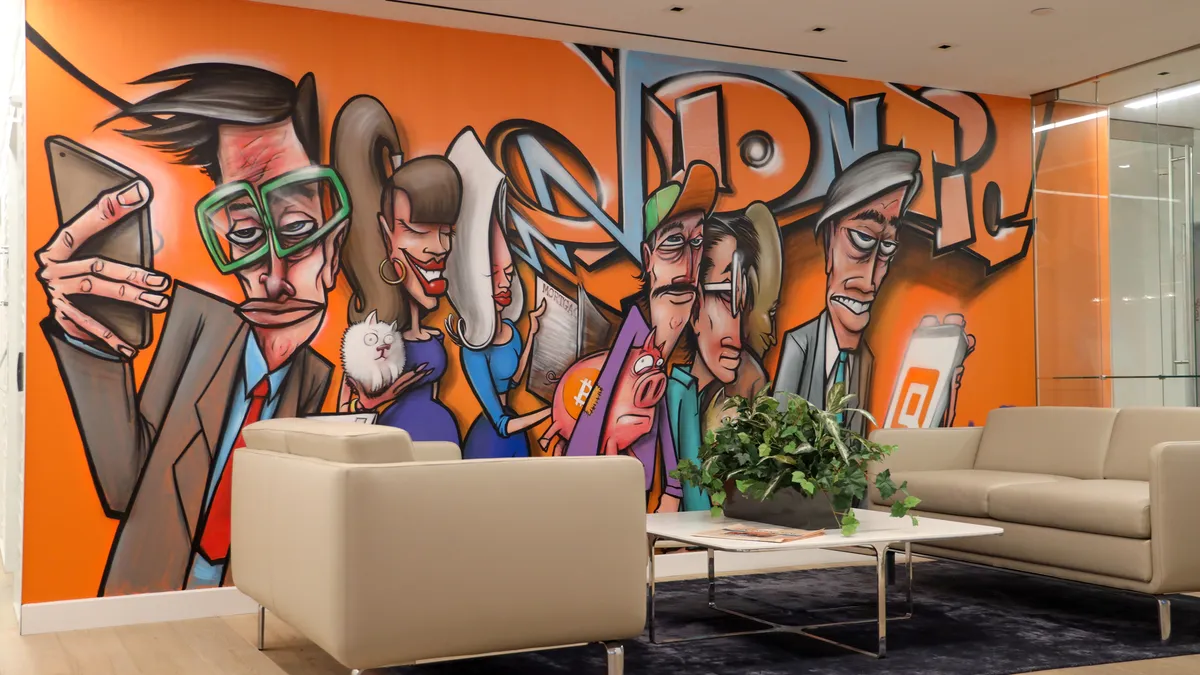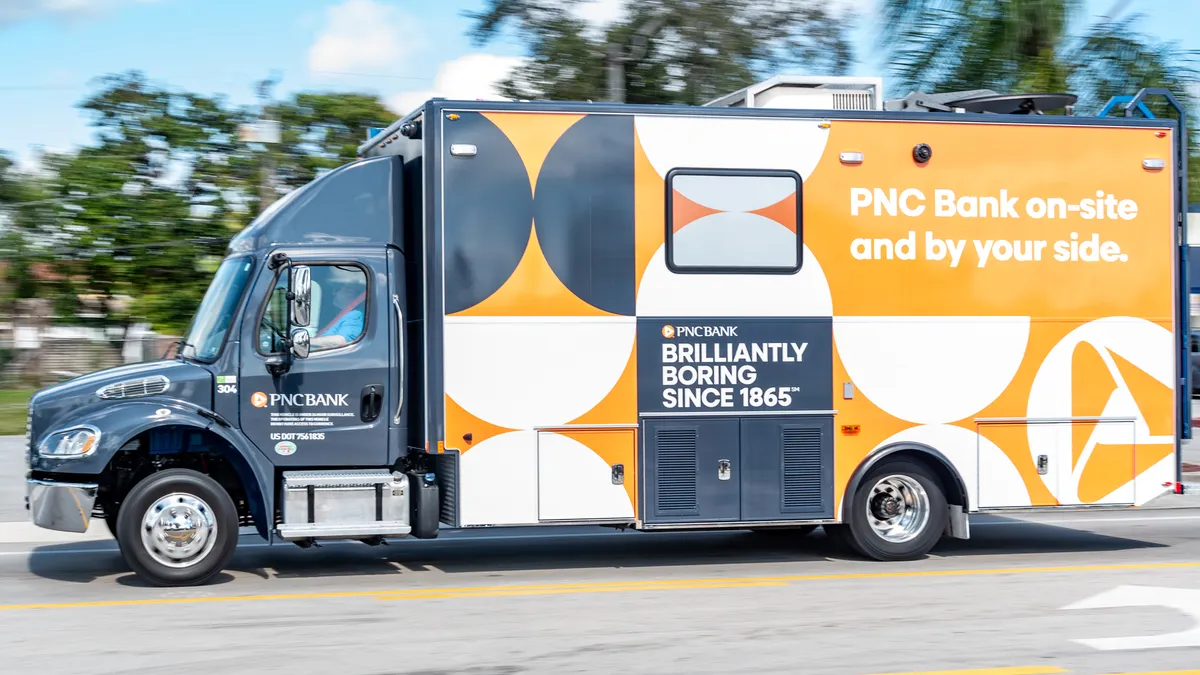Quontic, a bank headquartered in New York City, refers to itself as an "adaptive digital bank." Ever since CEO Steven Schnall purchased the former Golden First Bank in 2009, the entrepreneur and former mortgage banker has been molding the bank to reflect his vision.
"Part of the thesis when I bought the bank was that brick-and-mortar retail bank branches were ultimately going to die out, and people, consumers in particular, would want to bank online," he said.
Because of this belief, Schnall didn’t build any new branches after the purchase, aside from the brick-and-mortar location he built in Queens's Astoria section when he moved the bank’s headquarters from Great Neck, New York.
The bank, a certified community development financial institution (CDFI), started off with a focus on nonqualified mortgage lending, Schnall said.
"During the credit crisis most banks and lenders had significantly curtailed their lending on home mortgages, for good reason, because those were the loans that brought the world's economy to its knees," he said. "But there were a lot of people who I thought were deserving of loans who were getting left out."
The bank managed to carve out a niche providing loans to the diverse communities of Astoria that were underserved.
"We found that if we provide some income documentation relief, which we're able to do as a CDFI, we can make really good loans to really good borrowers who are being overlooked by the big banks and other lenders," he said.
In hindsight, however, Schnall said he was probably early in his view about branchless banking, and the lack of physical locations meant the bank had a difficult time building a core retail deposit franchise.
"Over the years, we started to rely pretty heavily on brokered deposits and listing services and [Federal Home Loan Bank] borrowings to fund our liabilities, and that caused some stress with our regulators," he said. "We had this plan to become a digital bank and the fact that the [Office of the Comptroller of the Currency] didn't like how we were funding our balance sheet, really caused us to have to accelerate those plans to truly become a digital-first bank and now really a digital-only bank."
It was no easy feat, Schnall said.
"People had online banking and mobile banking, but those were really ancillary to the branch, and we had to figure out how to deploy technology that became the consumers’ primary means of transacting with no branch," Schnall said. "It was an interesting journey and we learned a lot along the way. We figured out what we needed to do with our technology stack and how we had to change the culture to be more of a digital-facing institution than a face-to-face institution. So that really was the genesis of how we became a digital bank."
The bank has continued to adapt to changing consumer preferences and to position itself as a contender in the growing digital bank marketplace through the launch of unique products, Schnall said.
One such product, which the bank launched last fall, is a checking account that rewards consumers in Bitcoin. The product, which is in beta, appears to be the first Bitcoin rewards program offered by a U.S. bank.
For every purchase made through its debit card, Quontic pays the consumer 1.5% back in Bitcoin.
"It was something of a heavy lift for us," Schnall said, "but we believe that there's a place for Bitcoin in people's portfolios. We did a lot of surveys and found that there was a huge percentage of the population that was interested in Bitcoin, but didn't necessarily want to take the risk to acquire it themselves, or thought it was too volatile or didn't know how to go about getting it."
The bank also has a high-interest checking account for customers with direct deposit.
Schnall said the bank actually requires its consumers to make a minimum number of debit card transactions so it can collect merchant interchange fees, which are then used to pay the interest on the account.
"All of the accounts that we have online either pay top-of-market rates or require some interaction with the customer, primarily through use of a debit card that enables us to earn interchange that we can pay back to them in the form of things like Bitcoin rewards or cash rewards or high interest rates," he said.
Wearable technology
Quontic’s goal to become a trendsetter in the digital banking space has led the firm to explore innovative ways for customers to engage with their debit cards. The next product, Schnall said, will be one they can wear.
"In about 90 days, we're going to be launching a wearable debit card ring," Schnall said. "We think it's an interesting product in the era of COVID, where people want to touch fewer and fewer things with their hands. You can wear a ring, wave it over the card reader and you've made your purchase."
After meeting with an international vendor that makes the product, the bank has spent the past year negotiating a structure where it can be the first to launch the product in the U.S., Schnall said.
"The idea is for us to continue to innovate and continue to stay in front of the consumer in terms of being just this adaptive digital bank that we are," he said.
Remote work
Like many companies over the past year, Quontic has adapted to remote work amid the pandemic. The company became a 100% virtual workforce in the early days of the outbreak, a period that coincided with significant growth for the bank, Schnall said.
"Everybody was working from home, but we also had to start hiring at a pretty swift pace," he said.
Amid the new virtual environment, the bank decided to cast its recruitment net nationally to attract a broader pool of talent, Schnall said. The bank has hired around 150 people in the past 12 months and has filled several key management positions with talent dispersed across the country.
"Our CFO is in Dallas, our chief marketing officer is in D.C., our chief information security officer is in Vegas, our chief people officer is in Indiana, our head of digital is in Louisville — these are significant management positions of people that have never even been to our corporate headquarters," Schnall said. "That toothpaste probably doesn't go back in the tube for us because we are now a permanently virtual company."
Quontic recently entered into a new lease for its corporate headquarters, a full floor in Rockefeller Center in Manhattan. But Schnall said he can envision a future where the bank no longer needs the same amount of corporate space.
"People don't want to come back, for the most part," he said. "As long as we're able to witness and measure that productivity, there's really no reason to change. So does our corporate headquarters ultimately go away? I don't think you can have no headquarters, but do we whittle it down to 5,000 square feet when this lease ends? I can see that happening, for sure."














